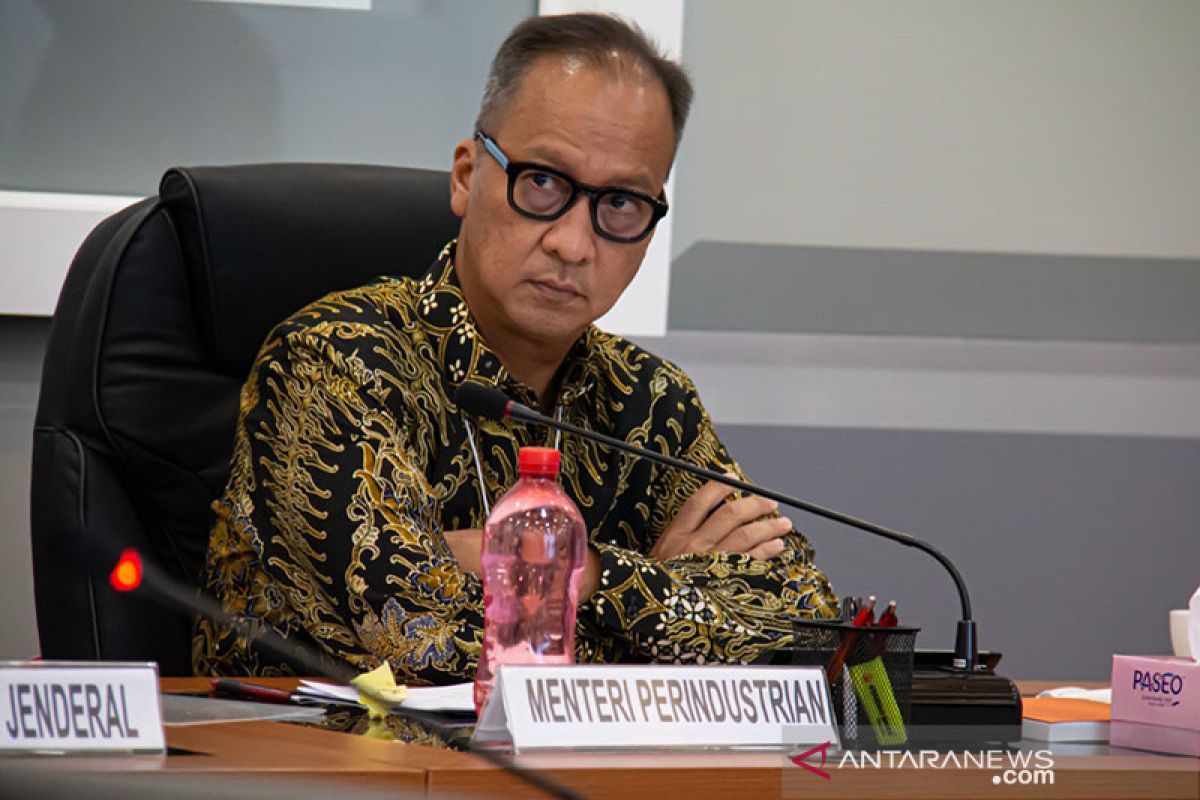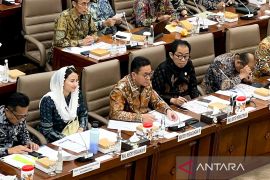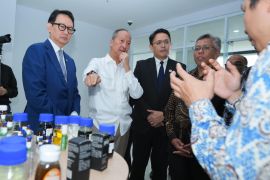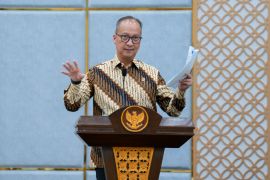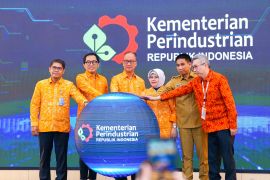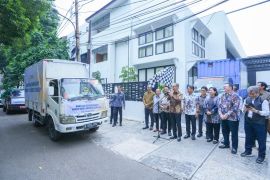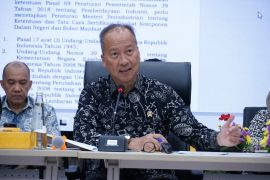The move is also aimed at completing the industrial structure in the country.
"We are in the process of formulating a road map for the import substitution program. The output and outcome will be import substitution, which we are striving to reach 35 percent by 2022," Minister of Industry, Agus Gumiwang Kartasasmita, said in a statement received in Jakarta on Wednesday.
Under the program, measures are being taken to implement import substitution in industries that recorded large import values in 2019.
They include machinery, chemical, metal, electronics, food, electrical equipment, textiles, motor vehicles, metal goods, and rubber and rubber goods industries.
“This (import substitution) is what we will handle through various policies. We believe this effort will encourage the deepening of the industrial structure, increase investment, and promote the absorption of new workers," the minister said.
To achieve the import substitution target of 35 percent in 2020, the Industry Ministry has taken steps to increase production utilization of all manufacturing industry sectors, with a target of gradually increasing it by 60 percent, 75 percent, and 85 percent in 2020, 2021, and 2022.
The Minister of Industry has revealed that the utilization of the industrial sector before the COVID-19 pandemic struck had reached 75 percent.
With the pressure caused by the pandemic, however, the utilization has fallen dramatically to 40 percent at the moment, according to the ministry.
With several efforts made to reduce the impact of COVID-19 on the industry, the current average utilization of the manufacturing industry sector has slowly started rising towards the 50-percent mark.
"Therefore, we will do our best to encourage the increase of utilization. The chain impact of optimal industrial activity will have a positive impact on labor conditions, increase the people's purchasing power, and increase the export market," Kartasasmita explained.
The government has also applied import control instruments, including limited prohibitions, imposition of pre-shipment inspections, and port management in eastern Indonesia, an entry point for preferred commodities.
"The effort is expected to reduce the entry of imported goods that are flooding Indonesia," the minister stated.
Other instruments include revamping the product certification body for the issuance of the Indonesian National Standard (SNI), implementing mandatory SNI, returning the rules of inspection of imported products from post-border to border, raising the Most Favored Nation (MFN) tariff for strategic commodities, and increasing the implementation of trade remedies.
"Compared to other countries, Indonesia only applies safeguards for 102 types of products and anti-dumping for 48 products, meaning that imported products still can easily enter Indonesia," Kartasasmita added.
The use of various instruments requires the support of various stakeholders, both from the industry and from government ministries and institutions, he said.
The Ministry of Industry is also encouraging increased domestic consumption to help boost demand.
"Because if the demand grows, the industry will also grow," the minister explained.
In addition, the Ministry of Industry has taken several efforts to develop the small and medium industry sector (SMI), including facilitating the absorption of raw materials for SMIs, optimizing the People's Business Credit (KUR) for all sectors, running a Proudly Indonesian Made campaign, and encouraging the implementation of the P3DN program.
"For this reason (to boost demand), we are continuing to urge ministries, institutions, SOEs and other parties to use domestic products," the minister said.
Related news: Ministry holds business-matching event to boost exports to Canada
Related news: Business operators ready to face new normal: Kadin
Translator: Sella Panduarsa Gareta/Aria Ci
Editor: Rahmad Nasution
Copyright © ANTARA 2020
